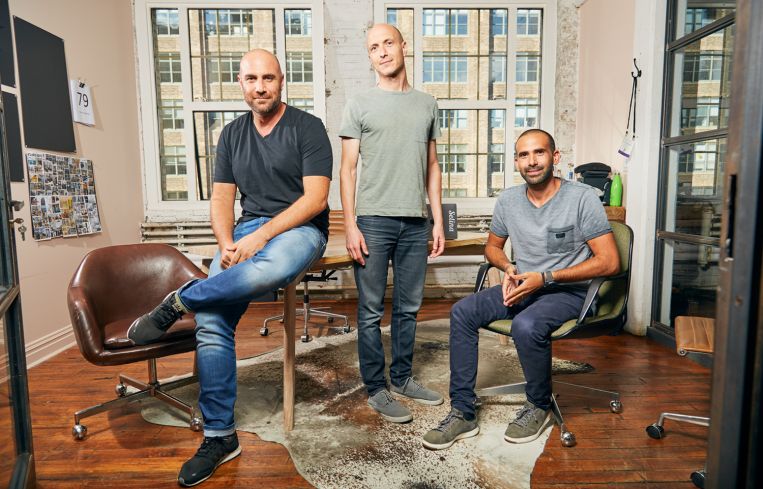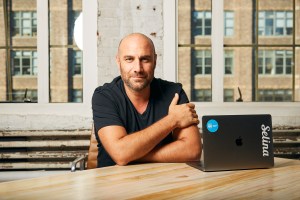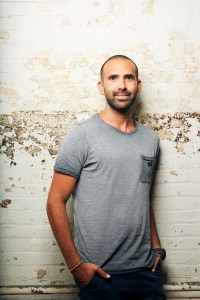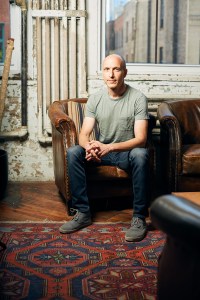Three Stars: Panama-Based Selina Talks Bringing Its Hotel-Hostel Hybrid to America
By Nicholas Rizzi September 5, 2018 4:38 pm
reprints
A Panama hotel chain that mixes high-end hotel units with multiple-bed dormitory rooms in the same building—along with a coworking space and local eateries—wants to expand from Latin America to the U.S.
Selina has been leasing existing hotel properties in places like Playa Del Carmen, Mexico, and Jaco, Costa Rica, and adds cafés, art, surfing lessons, wellness classes and more, all picked by locals and designed to give travelers a more authentic experience.
The Selina-branded hotels offer a mix of traditional hotel rooms and dorm-style rooms totaling between 150 and 500 beds. Its 161-room property in downtown Mexico City has nightly stays ranging from $7 for one of 20 dorm room beds up to $70 for a hotel suite with a king-sized bed.
Israeli-natives Daniel Rudasevski, 35, and Rafael Museri, 40, launched the company in 2015 —after months staying at hostels around the world—with the opening of the first Selina in a small fishing town in Panama. It has expanded to include 25 locations in cities, towns or remote jungle spots around Latin America.
By 2020, Selina wants to have more than 54,000 beds around the world, primarily in Europe and the U.S. It secured its first property in Miami—and its first-ever site in the U.S.—in June at the historic Tower Hotel in Little Havana, as Commercial Observer previously reported. The 52-room property should open by the end of the year and will be the area’s first boutique hotel.
A couple of months earlier, Selina closed a $95 million fundraising round, led by the Abraaj Group and WeWork Founder Adam Neumann, to lease (or occasionally buy) real estate in areas like Brooklyn and Lower Manhattan as well as various neighborhoods in Los Angeles.
The company is also planning a big push in Europe, gearing up to open its first location in Portugal by the end of the year. Rudasevski—a father of two—and Museri recently relocated with their wives from Panama to London to oversee the expansion.
Selina’s management also includes President Yoav Gery, 50, the former head of development at Morgans Hotel Group. The divorced father of one splits his time between New York and Washington, D.C., and is a driving force behind the company’s expansion plan in the U.S.
CO recently sat down with Rudasevski, Museri and Gery at the company’s offices at 12 Vestry Street, in Soho, to talk about the foundation of Selina and its plans to take on the U.S.
Commercial Observer: How did you two [Rudasevski and Museri] meet?
Rafael Museri: We knew each other from Israel. When Dani left to Latin America we had many common friends and then we just heard Daniel was living in this surf beach in Santa Teresa, having fun, doing amazing business. A great combo of lifestyle and business.
When I came to Latin America to deal real estate research we met and it was an immediate click. I think it took a week until we decided we were going to start [a business].
Daniel Rudasevski: Rafi is from the kibbutz [a communal farm] and I’m from Tel Aviv so it’s a good balance. The community, but put cool into it.
Where did the idea for Selina come from?
Rudasevski: We found out that tourists don’t like to feel like tourists. When I go to New York, I go to Times Square maybe once for five minutes, but I will leave in the evening because I want to go where the locals are.
If a tourist doesn’t want to be a tourist it means that the lobby of Selina, all these playgrounds—we don’t call it even a lobby—is a place that the locals will come and hang out [and] tourists will stay.
The experience of Selina is hospitality. It’s easy to move from place to place. On the one hand you know that it’s always going to be cool. You know that it’s going to be clean, you know that you’re going to see art, but every Selina will be totally different. When you go to Peru you feel like you’re in Peru.
Can you talk a bit about what you look for in a new property and how you make the decision that it’s a right fit for you?
Museri: The first thing we do in a country is pick a CEO for that country and then we pick his head of real estate. The most important person that he has on his right hand—which is the right side of the brain—is the experience director.
The experience director now builds the experience board. The experience board is a local creative F&B [food and beverage] experience, content, culture team all born and raised in the country. They know what the local community knows. For example, Bushwick, [Brooklyn]. It’s obvious but go there 10 years ago and Bushwick was like a rumor that few cool people knew about it.
Rudasevski: Only the local people know about it because if I would go to Bushwick 10 years ago I would say, “O.K. what’s going on?” It would take me a year or two just to understand that this is an upcoming area. Local people know already that this is coming.
Museri: The only way to get to [open in a neighborhood before it becomes too touristy] at 500 cities around the world is having a local team that makes the decision, not just giving me recommendations. Before anything becomes an investment commodity in this company, the experience board must sign off. If they don’t approve the deal, it doesn’t even come to us.
Rudasevski: Even if it financially makes sense we would not be doing it.

Where did the philosophy of using local designers at each hotels come from?
Rudasevski: It starts from the way we were doing real estate. We did real estate in Panama and the first place that we arrived in Panama was a small fishing town called Pedasi. We bought a lot of property in this area. There was nothing there so we started to build things. We opened a small coffee shop—we actually brought the first espresso machine to the town. Meanwhile, we said there is great fishing so let’s open a small kitchen with fresh fish and then we opened a small wine bar.
We saw that the prices started to go up without us even building anything because when we were building the town we focused on amenities. We build a community more than build [something out of] concrete. A lot of companies know how to build concrete today; it’s very technical. This is not the strength of our company. We understood that we are building a community and we did it in the small fishing town and then we scaled it to a different location.
What did you learn from that first acquisition?
Rudasevski: It didn’t come from market research. We were focused on this fishing town. So we took land, we took some artists—and they are still actually with us from day one—and we just built this extreme concept. Each cabin we painted differently and each cabin you open a door and there is a big surprise behind the door: one is totally dorms and the other one is luxury and everything in between.
We just found a concept and said, ‘Let’s now try to build a [business model which we] can replicate but keep the same localism and charm.’ This is the most difficult part. When you do copy and paste, you can lose it somehow. So for us, the experience of our client is no less important than our profit at the end of the month. Because if the experience is wrong, even though it will be very profitable, it doesn’t work for us.

How does the business model differ from traditional hotels?
Yoav Gery: The economics of finding the deal, closing the deal, opening the property, stabilizing the deal can sometimes take years [for a traditional hotel]. [It takes] a year to close the deal, two years to open [the hotel], another two or three or four years to stabilize. You’re talking about a very long lead time. [At Selina] we can identify a deal, we can sign the lease a month later we can literally open a Selina three or four or five months later.
Our model is we break even for the first three months and then we stabilize after a year of operation. You start making money and by a year out you are stabilized, which is a very fast turnaround and actually makes this model work for us. It makes the model work for our landlords. Everybody’s happy in the equation whereas previously it depended on the market, it depended on the deal.
Has that model been tracking in most of the places you’ve opened?
Gery: The short answer is yes. The stabilized properties are making money, some of them even more than we expected them to make, and from a soft opening to ramping up—meaning that first three months to a year—our properties generally are tracking. Nicaragua—unfortunately, because of the situation there [where a violent political crisis has left at least 300 people dead]—the properties are obviously not doing very well. We’ve had a couple of properties where we just don’t open them right and we don’t launch them right, but generally speaking the properties are tracking those economics.
Now we’re moving to the next level. We’ve closed a big [$95 million funding] round in [April]. These funds are there to really launch us into the next phase. We don’t want to just be a Latin America-based company. We’ve got an office in New York, most of our executive team is moving to London—we’re opening up our corporate headquarters there—and signing deals in the U.S., signing deals in Europe and really proving ourselves both in continuing development in Latin America, but also in the U.S. and Europe as well.
What drew you to Miami to first start in the U.S. and what cities are you looking at next?
Gery: Miami is obvious because it’s the U.S., it’s urban, it’s beach, it’s very Latin. We are at our core a Latin brand. We are now known in Central America, we’re now getting known in South America, so the leap into Miami is relatively easy. Most brands when they get to the U.S. New York, L.A. and Miami are the three must-have locations. We have an office in New York, we’d like to have a location in New York and prove ourselves here and then get to 20 locations in New York. We want to conquer the city. Same in L.A. We want to basically plant flags in Miami, New York and L.A., but what’s great about our brand is I want to be in Charleston, in Savannah, [Ga.], I want to be in Asheville, [N.C.]. I want to be in Austin [Texas] and in Boulder [Colo.]. I’d love to be in a desert outside of Las Vegas.

You started off buying hotels that were off the beaten path. Will that continue as you grow?
Gery: On the one side we’re a global brand and we need to be in the New Yorks or L.A.s of the world. On the other hand, what we do offer is something unique. We absolutely want to be in a lot of remote destinations.
We can definitely picture starting in Vancouver, Canada, and finding properties in Seattle and Portland and everything in between all the way down to San Francisco, L.A. and San Diego. That way somebody can rent a minivan in Vancouver and take three months just driving down Route 1 staying at all of our locations—hitting Seattle and Portland—but at the same time finding some unique small-town beach destinations in Portland, which are amazing, and putting a property there where you could stop for a week.
Where has the funding been coming from?
Museri: Adam Neumann invested, Sir Ronald Cohen—the co-founder of Apax [invested]. Gigi Labs is one of the best and the most important tech angels in Israel, all the way to the Embassy Group in India, which is one of the biggest real estate developers in India. We have a lot of strong people in different regions around the world that will allow us to make this global growth easier.



